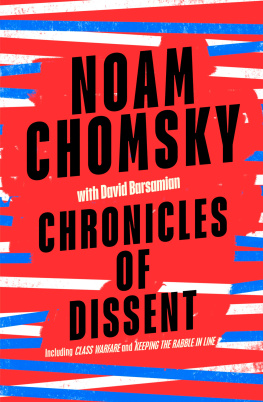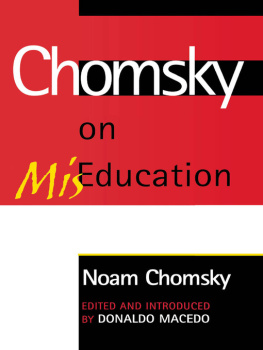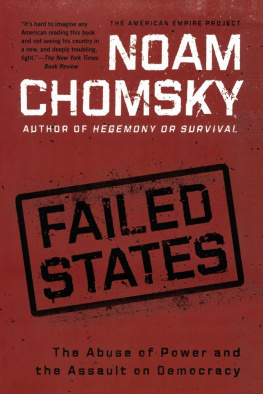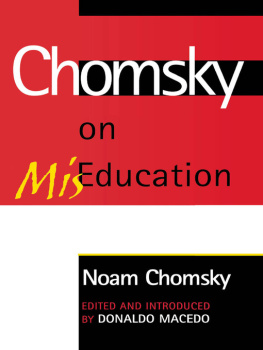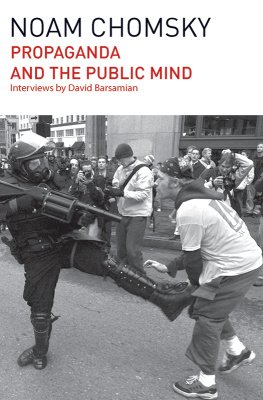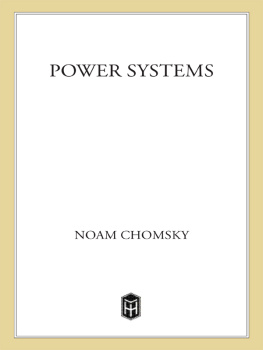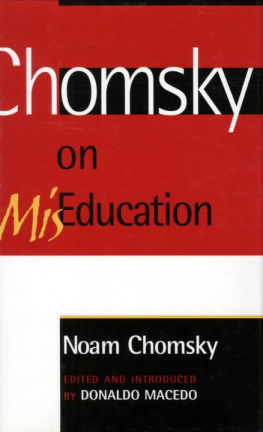CONVERSATIONS ON GLOBAL DEMOCRATIC UPRISINGS AND THE NEW CHALLENGES TO U.S. EMPIRE
The New American Imperialism
C AMBRIDGE , M ASSACHUSETTS (A PRIL 2, 2010)
One of the themes that Howard Zinn tried to address during his long career was the lack of historical memory. The facts of history are scrupulously ignored and/or distorted. I was wondering if you could comment on imperialism then and now, interventions then and now. Specifically about Saigon in 1963 and 1964 and Kabul today?
What happened in Vietnam in the early 1960s is gone from history. It was barely discussed at the time, and its essentially disappeared. In 1954, there was a peace settlement between the United States and Vietnam. The United States regarded it as a disaster, refused to permit it to go forward, and established a client state in the South, which was a typical client state, carrying out torture, brutality, murders. By about 1960, the South Vietnamese government had probably killed seventy or eighty thousand people. The repression was so harsh that it stimulated an internal rebellion, which was not what the North Vietnamese wanted. They wanted some time to develop their own society. But they were sort of coerced by the southern resistance into at least giving it verbal support.
By the time John F. Kennedy became involved in 1961, the situation was out of control. So Kennedy simply invaded the country. In 1962, he sent the U.S. Air Force to start bombing South Vietnam, using planes with South Vietnamese markings. Kennedy authorized the use of napalm, chemical warfare, to destroy the ground cover and crops. He started the process of driving the rural population into what were called strategic hamlets, essentially concentration camps, where people were surrounded by barbed wire, supposedly to protect them from the guerillas who the U.S. government knew perfectly well they supported. This pacification ultimately drove millions of people out of the countryside while destroying large parts of it. Kennedy also began operations against North Vietnam on a small scale. That was 1962.
In 1963, the Kennedy administration got wind of the fact that the government of Ngo Dinh Diem it had installed in South Vietnam was trying to arrange negotiations with the North. Diem and his brother, Ngo Dinh Nhu, were trying to negotiate a peace settlement. So the Kennedy liberals determined that they had to be thrown out. The Kennedy administration organized a coup in which the two brothers were killed and they put in their own guy, meanwhile escalating the war. Then came the assassination of President Kennedy. Contrary to a lot of mythology, Kennedy was one of the hawks in the administration to the very last minute. He did agree to proposals for withdrawal from Vietnam, because he knew the war was very unpopular here, but always with the condition of withdrawal after victory. Once we get victory, we can withdraw and let the client regime go.
Actually, imperialism is an interesting term. The United States was founded as an empire. George Washington wrote in 1783 that the gradual extension of our settlements will as certainly cause the savage, as the wolf, to retire; both being beasts of prey, tho they differ in shape. Thomas Jefferson predicted that the backward tribes at the borders will relapse into barbarism and misery, lose numbers by war and want, and we shall be obliged to drive them, with the beasts of the forests into the Stony mountains. Once we dont need slavery anymore, well send the slaves back to Africa. And get rid of the Latins because they are an inferior race. Were the superior race of Anglo-Saxons. Its only to the benefit of everyone if we people the entire hemi sphere.
But none of that is considered imperialism because of what some historians of imperialism call the saltwater fallacy: its only imperialism if you cross saltwater. So, for example, if the Mississippi had been as wide as the Irish Sea, lets say, then it would have been imperialism. But it was understood to be imperialism at the timeand it is. Settler colonialism, which is what this is, is by far the worst kind of imperialism, because it gets rid of the native population. Other kinds of imperialism exploit them, but settler colonialism eliminates them, exterminates them, to use the words of the Founding Fathers.
When the United States reached the geographic limits of what we call the national territory, U.S. expansionism just continued. Immediately. Eighteen ninety-eight, thats the year when the United States essentially conquered Cuba. The U.S. takeover was called liberating Cuba. In fact, Washington was preventing Cuba from liberating itself from Spain. Then the United States stole Hawaii from its population and invaded the Philippines. In the Philippines, U.S. troops killed a couple hundred thousand people, establishing a colonial system, which still exists. Thats one of the reasons why the Philippines has not joined the rest of East and Southeast Asia in the economic development of the past twenty or thirty years. Its an outlier. Part of the reason is it still retains the structure of the neocolonial system that the United States established.
But the new American imperialism seems to be substantially different from the older variety in that the United States is a declining economic power and is therefore seeing its political power and influence wane. Im thinking, for example, of a Latin American hemisphere-wide organization that was recently formed that excludes the United States. Such a thing would have been unthinkable in the more than century-long U.S. domination of the continent.
I think talk about American decline should be taken with a grain of salt. The Second World War is when the United States really became a global power. It had been the biggest economy in the world by far for long before the war, but it was a regional power in a way. It controlled the Western Hemi sphere and had made some forays into the Pacific. But the British were the world power. The Second World War changed that. The United States became the dominant world power. The wealth of the United States at that time is hard to believe. The United States had half the worlds wealth. The other industrial societies were weakened or destroyed. The United States was in an incredible position of security. It controlled the hemi sphere, both oceans, the opposite sides of both oceans, with a huge military force.
Of course, that declined. Europe and Japan recovered, and decolonization took place. By 1970, the United States was down, if you want to call it that, to about 25 percent of the worlds wealthroughly what it had been, say, in the 1920s. It remained the overwhelming global power, but not like it had been in 1950. Since 1970, its been pretty stable, though of course there were changes.



